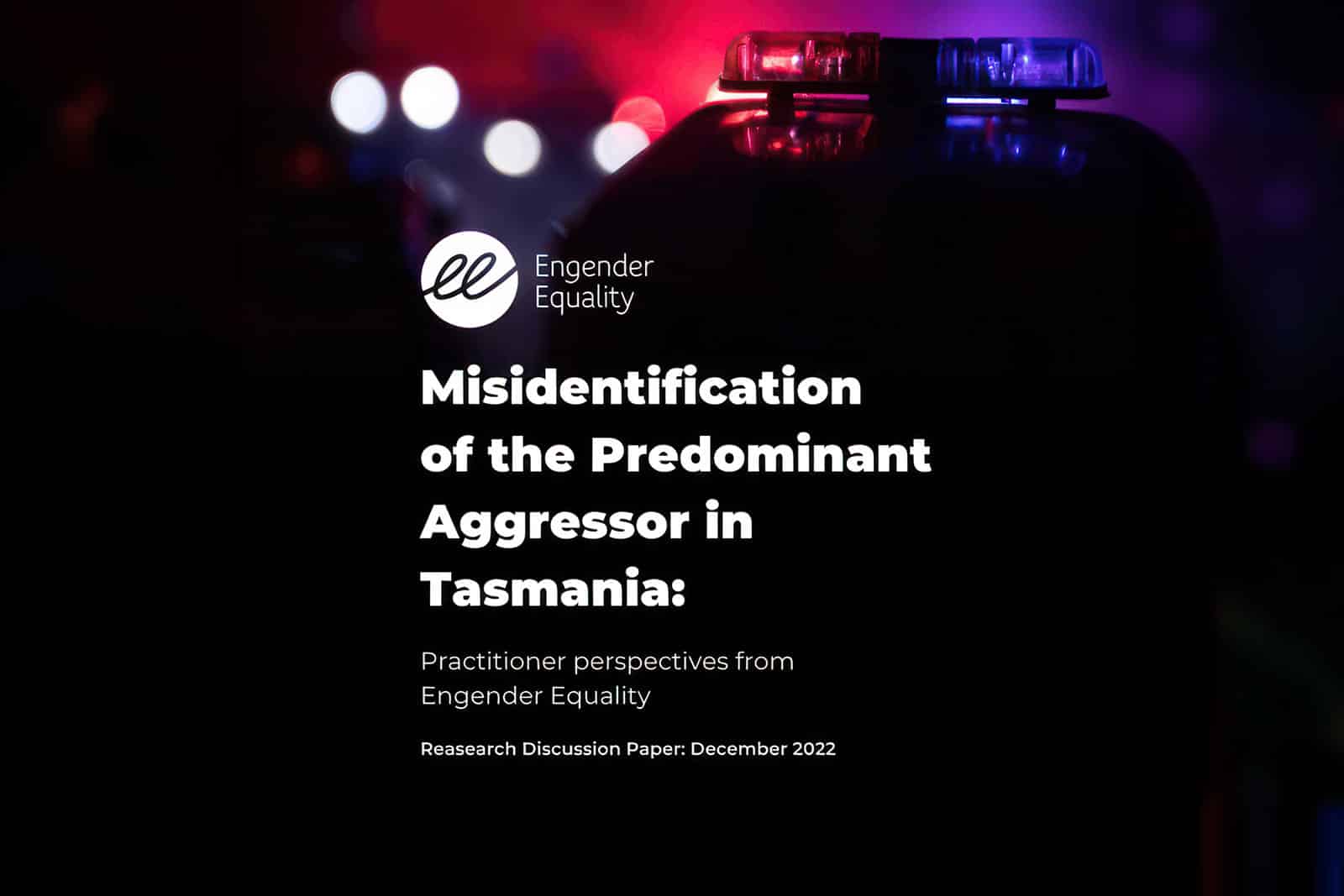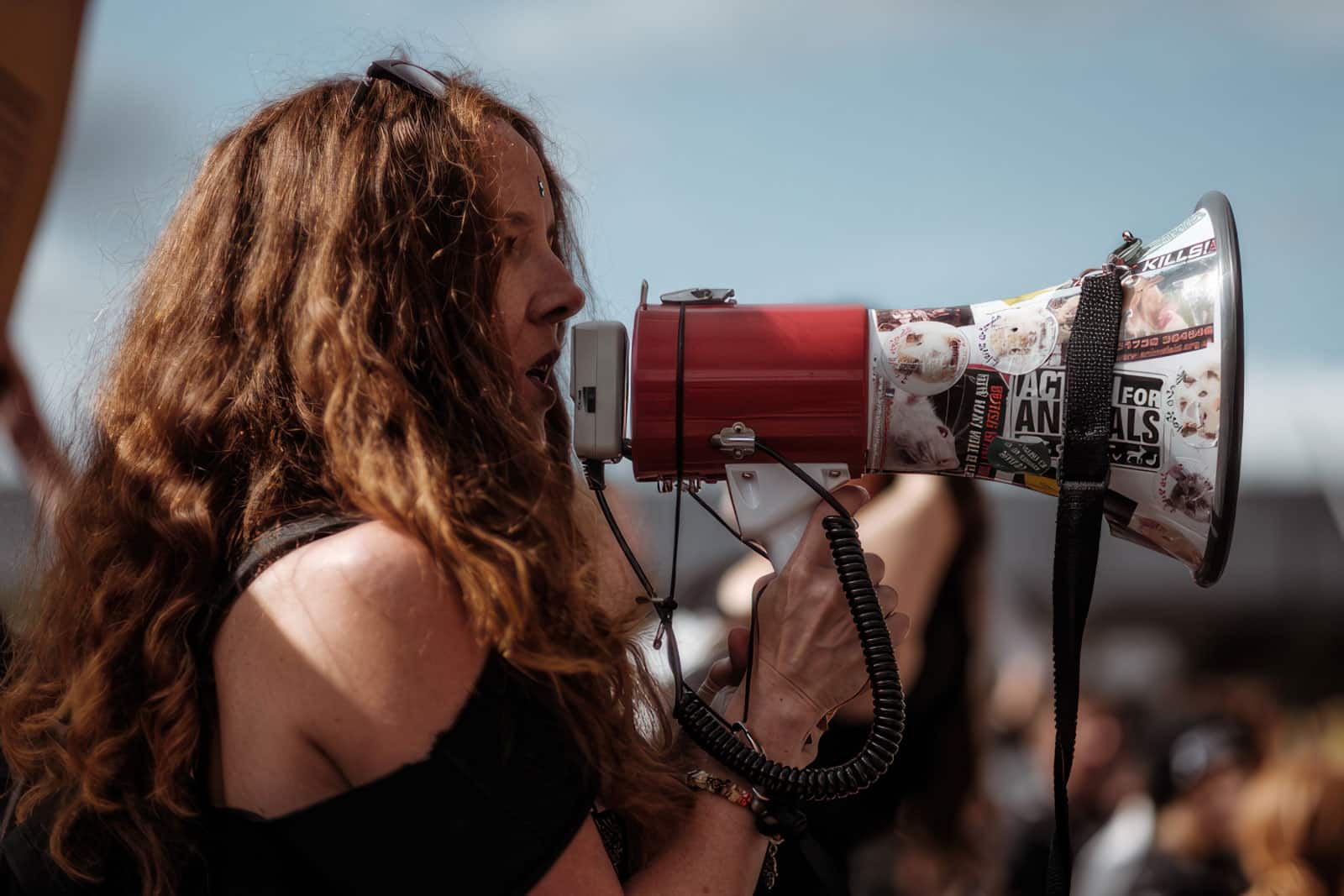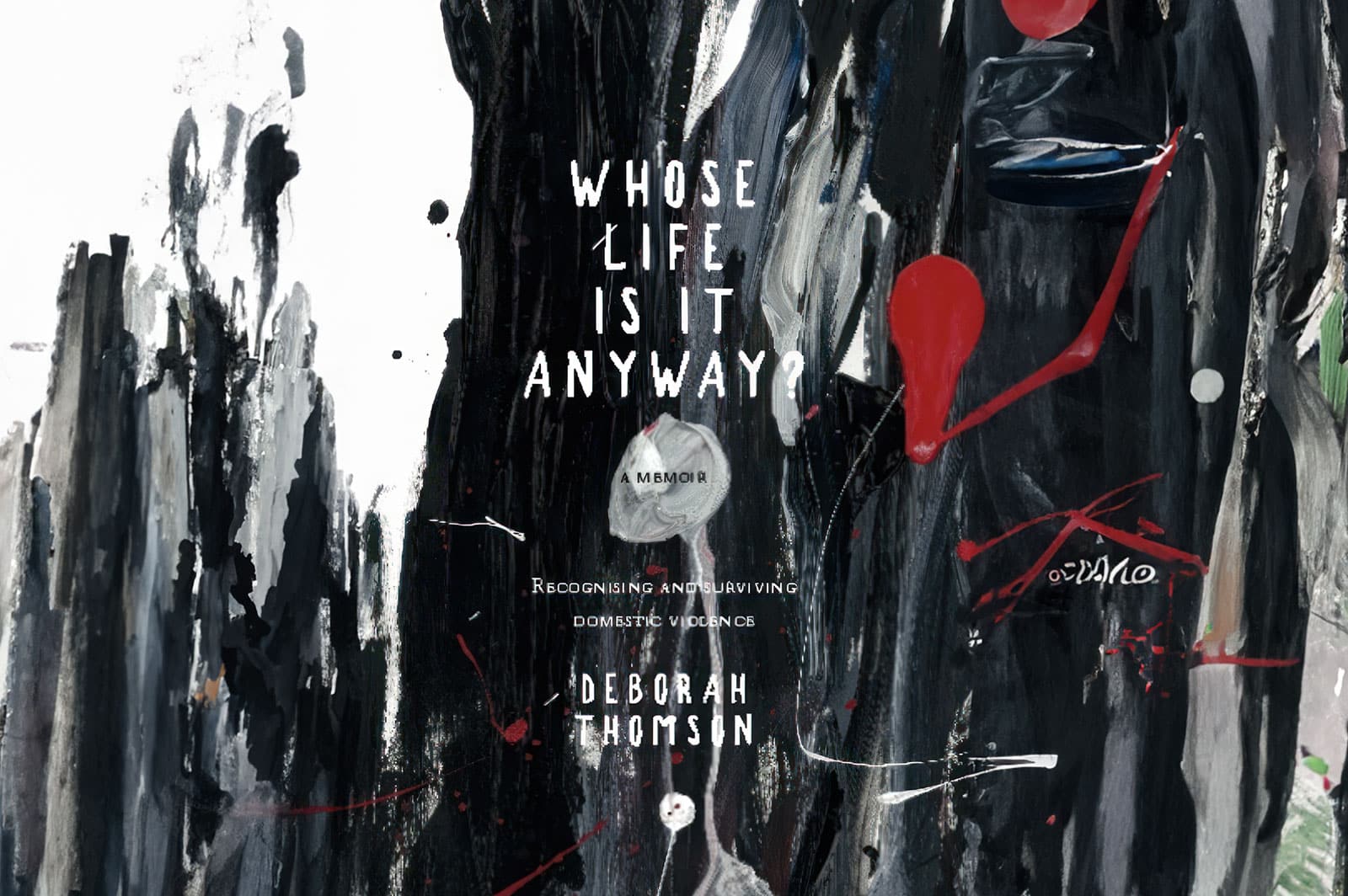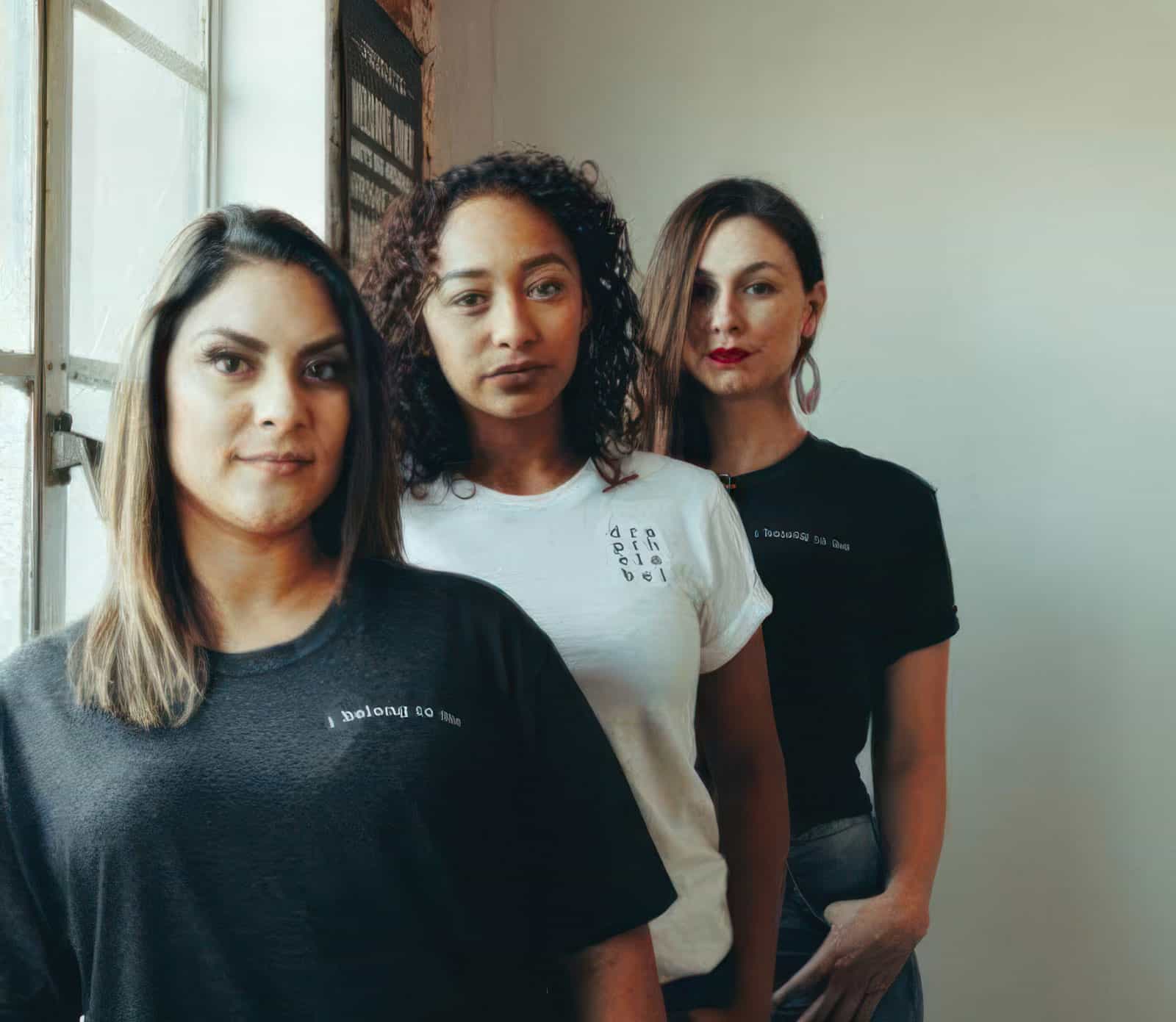Discussion Paper Launch - Misidentification of the Predominant Aggressor in Tasmania
For immediate release: 28 February 2023
The injustice of reporting family violence – Engender Equality to release research discussion paper on the misidentification of the predominant aggressor by family violence respondents
- A study by Women’s Legal Service NSW reported that two-thirds of women who had been identified as primary aggressors were victim survivors. i
- A study by Women’s Legal Service Victoria reported that one in ten women who were victim-survivors had been misidentified as primary aggressors.ii
- Tasmanian has a unique legislative approach to family violence which may contribute to misidentification. iii
Following a public forum held in 2022, Engender Equality is holding an event at Government House Hobart on Thursday 2nd March, 2023 to launch their research discussion paper on the misidentification of the predominant aggressor in Tasmania.
Engender Equality is releasing a research discussion paper on the misidentification of the predominant aggressor in Tasmania with an event at Government House Hobart to coincide with International Womens’ Day. This follows the successful public forum held in 2022 that provided the opportunity for community representatives and government representative to talk about the issue.
The research discussion paper Misidentification of the Predominant Aggressor in Tasmania: Practitioner Perspectives from Engender Equality provides important insight through the perspectives of family violence practitioners into the experiences of victim-survivors of family violence who have reported to police but have been wrongly identified as the aggressor in the relationship.
Misidentification of predominant aggressor occurs when the police or other responder inaccurately determine who the person using abusive behaviour is in a family violence relationship.
Previous research has shown that predominant aggressors are more likely to use violence for abuse and control, whereas a victim-survivors are more likely to use violence in retaliation or self-defence. In response to a report of family violence, police may misinterpret these nuanced dynamics, leading them to misidentify the victim-survivor as the predominant aggressor.
“There is a growing body of research to suggest that women are being misidentified as predominant aggressors in increasing numbers in Tasmania. Women who have been misidentified may face criminal charges, poverty, removal of children, loss of reputation and employment and re-traumatisation through the system that is meant to be there to protect them. Misidentification may be influenced by systems abuse (perpetrator using the system to use power and control) and incident-based policing. It is clear that the impacts are broad and far-reaching and influence the recovery of a victim-survivor in many ways” Ms Thomas explained.
“We are hoping that this paper will assist police and stakeholders who provide family violence support to gain greater insight into the issue and encourage policy and legislation to be reviewed to reduce the number of victim-survivors who are mis-identified. Engender Equality is very passionate about advocating to address this problem and hope that our research leads to change.” Ms Thomas added.
A full copy of the report will be made available the website engenderequality.org.au after the event.
Attendance at the event is by invitation only but there will be a media opportunity on the lawns of Government House after the event which runs from 12:30 – 2:00 pm.
Speaking out to end violence against women
Friday 1st February 2019
Speaking out to end violence against women
- Approximately one quarter of women in Australia have experienced at least one incident of violence by an intimate partner.
- Australian women are most likely to experience physical and sexual violence in their home, at the hands of a former or current male partner.
- On average, one woman a week is killed by her intimate partner Australia’s
(Australia’s National Research Organisation for Women’s Safety, 2018)
Despite these statistics, the voices of women who have experienced violence and abuse are often missing from the media.
In partnership with Our Watch, Tasmanian family violence service Engender Equality is facilitating a media advisory training program called Advocates for Change.
“The Advocates for Change program offers training to Tasmanian survivors of family violence to safely tell their story. It aims to improve the reporting of family violence in Tasmania and address the stigma that family violence victim’s experience,” explains Alina Thomas CEO of Engender Equality.
The Tasmanian Government is a member of Our Watch, the national organisation set up to drive change in the culture that leads to violence against women. Our Watch focuses on strengthening primary prevention messages, highlighting the connections between gender inequality and violence against women.
“Engender is very excited to be running this program with Our Watch. Over the years we have had many women want to share their experience to support other people who have experienced family violence and this program will give the resources to make that happen in a safe way,” Ms Thomas explained.
Training is free for participants and will be conducted in Hobart and Launceston.
Expression of interest remain open until Friday 8 February 2019 and can be completed online via this link: https://form.jotform.co/83378373663872
For all media enquiries please contact:
Alina Thomas
Tasmanian women’s organisations support birth certificate changes
Wednesday 7th November 2018
Speaking up for Tasmania’s Women
In recent debate regarding proposed amendments to the Justice and Related Legislation (Marriage Amendments) Bill 2018, incorrect statements have been given a platform by groups such as Women Speak Tasmania (‘WST’).
WST say the safety of women’s services is at risk if transgender women are allowed access.
Further, WST claim to speak for the concerns of the broader Tasmanian community in this – presumably for Tasmanian women.
We are a group of women’s specialist services. WST did not consult our representatives before making these statements and they do not represent the views of our organisations, staff, Boards of Governance or membership.
It is our position that transgender women are women and they are welcome at our services.
As key organisations representing women’s voices in Tasmania, our service policies and advocacy positions are developed through regular processes of discussion and consultation. We have not been informed of any consultation process by Women Speak Tasmania through which their policies were developed.
We can say with certainty that they do not represent the large number of women associated with our organisations. They do not speak for us.
The proposed amendments are narrow in scope, relating to two discrete issues: the removal of sex markers on birth certificates; and the removal of the requirement for transgender people to undergo sex reassignment surgery in order to obtain documents that properly reflect their true gender. To assert that the reforms represent anything more than this is wrong.
Women Speak Tasmania hold the position that transgender women are not women and oppose the amendments on this basis. This is unjust and prejudicial.
WST also argue that transgender women pose a threat to women’s safe spaces.
There is no research or service experience to suggest that men who seek to harm women change their gender or masquerade as transgender women in order to do so.
Acknowledging in law the human rights of transgender people does not reduce the human rights enjoyed by non-transgender people. Protecting women’s rights and supporting transgender people are not mutually exclusive.
Through our collective experience of providing legal, health, domestic violence and housing services to women, we are already successfully supporting transgender women who, it should be noted, are often themselves victims of violence and targeted by people who use abusive behaviour.
Arguments such as those promulgated by WST only result in greater danger, including physical assaults to transgender women, non-binary individuals, and women who do not conform to stereotypes of femininity. These attitudes also stand as barriers to gender diverse people accessing services and as such, they remain at greater risk to violence and abuse.
For the vast majority of the population the proposed amendments will have no apparent practical impact. But for those in the transgender, gender diverse and intersex community the impact is profound.
The amendments do very little, beyond making life significantly easier for a small group of people. To the extent that WST have an issue with that, it is clearly an ideological one and in its effect it is discriminatory.
Our organisations have always been a safe and welcoming place for all women and they remain so.
For further media enquiries please contact:
Alina Thomas
Chief Executive Officer
Susan Fahey
Women’s Legal Service Engender Equality
Local author tells personal story to support family violence victims (book launch)
Monday, 16th April 2018
Local author tells personal story to support family violence victims (book launch)
Deborah Thomson found the peaceful life she always wanted in Chasm Creek, on the North Coast of Tasmania, but it took her a long time to get there. Deborah Thomson has written a book about what happened when her life was changed irrevocably by an abusive partner, a relationship which she endured for 17 years.
Whose Life is it Anyway? Recognising and Surviving Domestic Violence published by Brolga Publishing, aims to support people being impacted by abusive partners. “I have written this book to help others in similar situations to leave early in their relationship, before they too suffer debilitating trauma,” stated Deborah Thomson author of the new book. “Since leaving I have come to realise how debilitating trauma is when associated with staying in a long-term violent partnership. Lived experience has shown me that such trauma can take half a lifetime to resolve,” explains Ms Thomson.
Alina Thomas, CEO of Family Violence service SHE, says that Deborah’s experience is not uncommon. “Trauma is an inevitable consequence of long term abusive relationships. We see hundreds of women, every year in Tasmania who are left with physical and emotional symptoms of trauma due to ongoing abuse in relationships.”
The courage of women who have survived Family Violence can give hope to other people experiencing family violence as well as be a source of inspiration to the broader community. Family Violence advocate Rosie Batty changed the way that Australia responded to family violence and our local advocates say there is still a lot that needs to happen. As Author Deb Thomson explains, “we need to do whatever we can to keep the issue of DV in the public’s vision while simultaneously supporting victims in whatever way possible”.
Alina Thomas believes there needs to be a greater investment in primary prevention and early intervention. “In Tasmania we are very focused on a tertiary response, what the police and the courts do after the violence has occurred. But if we are going to see a reduction in the family violence epidemic we need to be investing in programs that target the problem before it escalates to this point,” stated Ms Thomas.
Deborah Thomson’s book Whose life is it Anyway will be launched by Her Excellency Professor the Honourable Kate Warner AC at Fullers Bookshop on Wednesday 18th April at 5.30pm.
For photos, interviews and more information please contact:
Deborah Thomson, Author
Alina Thomas, CEO SHE
Improving services for mental health and family violence
Monday 14th November, 2016
Improving services for mental health and family violence
Tasmanian Family Violence Service, SHE (Support, Help and Empowerment), has today released a Family Violence toolkit for mental health professionals. The toolkit provides a go to guide on the basics of working with people who are experience family violence.
This important new resource, being launched by Robin Banks, the Equal Opportunity Commissioner of Tasmania, also supports family violence training SHE has delivered to the mental health sector.
“With the growing awareness of the causes and prevalence of family violence in Tasmania, comes a responsibility for community services to be able to work effectively with those who are being impacted,” explained, Mental Health Council of Tasmania, CEO , Connie Digolis.
There is a significant body of research that links a bi-directional causal relationship between exposure to family violence and persistent mental health challenges. However, family violence is often a hidden problem among people seeking support for their mental health issues[i].
SHE Executive Officer, Alina Thomas states that, “if women are seeking help with symptoms of mental illness it can be very likely that family violence is an underlying issue. This resource will be the first of its kind to bring together the specialist practice of family violence intervention and the important work that is being done in the mental health sector.”
Under a grant received from the Partners in Recovery Tasmania, SHE has also designed and delivered a Champions Program to up skill those working in the mental health field to become more confident in responding to people experiencing mental health issues and family violence. The program has been an outstanding success with 12 people from across the state graduating from the intensive training today.
“Recognising and responding effectively to people who have experienced family violence requires specialist knowledge of the dynamics and conditions that they have experiences” explained Alina Thomas, Executive Officer of SHE
The SHE program has provided important insight and understanding to the complex issue’s surrounding mental health and family violence. It is anticipated that many people, both workers and the community they support will benefit from the new toolkit and training.
(If you need help, please call Family Violence Counselling and Support Services on 1800 608 122 or SHE on 6278 9090)
[i] TREVILLION, K., ORAM, S., FEDER, G., & HOWARD, L. M. (2012). Experiences of Domestic Violence and Mental Disorders: A Systematic Review and Meta-Analysis, PLoS ONE, 7(12)
Women want women’s services – family violence victims speak out
Women want women’s services – family violence victims speak out.
Tasmanian Domestic Violence Service, SHE (Support, Help and Empowerment), has released new research on the needs of women who have experienced domestic violence in and attempt to better inform services across the state.
The Hodgman Government is in the process of releasing over 5.5 million dollars to improve service delivery to people in or leaving violent and abuse relationships. “With many family violence services experiencing unparalleled high levels of demand it is commendable that the Liberal Government is showing unprecedented support for domestic violence service in Tasmania”, declared Alina Thomas Executive Officer of SHE.
The research conducted on behalf of SHE, investigates the experience of women accessing services to address the impacts of family violence. “What we found is that, while each woman had a unique experience leading them to needing help, the service needs were surprisingly similar….we found that empowerment was identified as the most important priority for women. Empowerment is about being heard and believed, regaining autonomy and realising your choices,” explained key researcher Sarah Van Est.
With the primary drivers of family violence now widely identified as gender inequality and rigid gender roles, women-orientated services that draw on a feminist framework for service delivery have been shown to yield the best outcome for family violence victims. “Women need to know that there safety is paramount. They want to be heard and they want to be believed. For women who have experienced repeated abuse and made to feel like they are responsible, to blame or deserve the abuse that has been inflicted up them, empowerment is a very powerful and healing experience”. Ms Thomas states.
One of the research participants shared, “the biggest thing for me, it that my counsellor was the only person ever, in all my contact with services, who never asked me to consider things from his point of view and didn’t ever make me doubt that it wasn’t bad, or significant, or life affecting”.
SHE is hoping that the research will continue to guide the development of family violence services across the state to ensure best practice and value for money.
The SHE research will be launched today (on the 16th March) by Excellency Professor the Honourable Kate Warner AM, at Government House, Hobart.
Rethinking safety for women with disabilities
Combined Media Release, Langford, Speak Out Advocacy and SHE Inc.
2 December 2015
Rethinking safety for women with disabilities
Speak Out Advocacy, Langford and SHE Inc join together on International Day for People with Disability to call for investment in safer communities for people with disabilities
3 December is International Day for People with Disability. Services are using this opportunity to call for an improved response to safety that listens to the particular needs of people with disabilities.
“People with disabilities don’t always fit neatly into domestic violence services. People’s primary relationships are with family, carers and possibly other residents at accommodation facilities” explained Alina Thomas EO of SHE, domestic violence service for women.
Women with disabilities are 40% more likely to be victims of domestic violence than their peers and they experience higher levels of violence. Ninety per cent of women with an intellectual disability have been subjected to sexual abuse, often before they turn 18.
Disability service providers recognise the gap in services for their clients. “We know that women with disabilities experience violence and abuse at a much higher rate than the rest of the population, however there are no tailored services to address this issue” stated Jenny Dixon CEO at Speak Out Advocacy.
Women with Disabilities Australia also encourage a more substantial response to the issue and promote the need for empowerment programs for women with disabilities to be able to understand and recognise what constitutes violence and abuse. Family members, carers and front line staff also need to be equipped in a practical and pragmatic way that promotes safety and wellbeing in a way that is respectful and supportive to women.
“Women can become at risk of abuse and violence as they seek to form social networks and forge their independence. Women with disabilities can feel quite isolated and this is why we need specialised services responses that are aware of these particular issues,” stated Kate Gillham from Langford support services.
Speak Out Advocacy and SHE have worked collaboratively this last year to bring together women with disabilities who have experienced violence and abuse. It is hoped that in 2016 this dynamic group will further inform a tailored response to violence and abuse.
Sources
Fact Sheet: Violence Against Women With Disabilities Prepared by Carolyn Frohmader, Women With Disabilities Australia (WWDA) Australian Civil Society Delegation to the 53rd Session of the Committee Against Torture, Geneva, November 2014 http://www.pwd.org.au/documents/temp/FS_Violence_WWD’s.pdf
Tayton, S., Kaspiew, R., Moore, S. and Campo, M. (2014) Groups and Communities at Risk of Domestic and Family Violence, Australian Institute of Family Studies.
http://wwda.org.au/call-for-urgent-action-end-violence-against-people-with-disability/
Hegarty and O’Doherty, 2011, Intimate Partner Violence Identification and response in general practice, Australian Family Physician, Vol 40, No11 Nov
New Toolkit helps GPs to identify Family Violence
12 November 2015
NEW Toolkit helps GPs to identify Family Violence
Hobart Domestic Violence Service, SHE (Support, Help and Empowerment), has released a Family and Domestic Violence toolkit for GPs and other medical practitioners for distribution across Tasmania.
It is estimated that GPs may see up to 5 women per week who have experienced sexual violations, physical assault or emotional abuse by their partner, yet family violence remains hidden making it a challenge for clinicians to address.
Dr Alison Edwards a GP at Family Planning Tasmania describes, “With GPs being the person that often hears the initial disclosure of family violence from a woman, their response can be so very important to the family’s wellbeing. The SHE toolkit provides GPs with up to date information and resources on how to assist the woman and ultimately maximise her safety.”
“For some women controlling or manipulative relationships have become a way of life and they don’t think to mention it to their GP even though medical services may be one of the few places where they should feel safe to say something”, explained Alina Thomas, Executive Officer of SHE.
The response of a medical practitioner can be the difference between getting the support a person needs to stay safe or to leave an unhealthy relationship. It is estimated that 1 in 5 women make their first disclose to their GP.
“GPs play a crucial role in identifying and responding to family violence in the community as we have ongoing relationships with people and families throughout their lives and there is a chance to build trust and encourage disclosure,” explained Hobart GP Dr Lisa Searle
The toolkit gives practical information and guidelines about identifying and responding to women and children who are experiencing family violence.
“Safety, discretion, and informed responses can be the difference between life and death,” stated Ms Thomas, “a GP’s response can also determine whether women get the services they need to look after themselves and protect their children”.
“A lot of women who are experiencing abuse or violence become very isolated. Their GP or other health professional can be the one place where they feel safe reaching out for help and support. This toolkit by SHE will help health professionals to be up to date and appropriately equipped to respond to disclosures of violence,” said Dr Searle.
The toolkit covers the key physical and psychological indicators of violence, how to conduct risk assessments, details of organisations providing support to victims of family violence, and a description of the police and judicial responses in Tasmania.
SHE thanks RACT for the grant to cover the printing costs associated with the toolkit. Copies are being distributed to surgeries and health clinics across the state and are available from admin@she.org.au
Sources
“22.5% of women make their first disclosure of domestic violence to their GP.” Routine Screening Impact Evaluation Study. 2008
Hegarty and O’Doherty, 2011, Intimate Partner Violence Identification and response in general practice, Australian Family Physician, Vol 40, No11 Nov
Roberts G et al ‘Intimate Partner Abuse and Health Professionals: New Approaches to Domestic Violence’ London: Churchill Livingstone Elsevier, 2006, 19-40 in Abuse and Violence: Working with Our Patients in General Practice (3rd ed), The Royal Australian College of General Practitioners, Victoria, 11.
Commemorating women who have been killed by their intimate partners
Media Release 6 May 2015
Commemorating women who have been killed by their intimate partners: Domestic and Family Violence Candle Light Vigil
In line with other states across Australia, the Tasmanian domestic violence services are collaborating to present the 2015 Candle Lighting Ceremony on Wednesday the 6th May at 5.30pm in Franklin Square. Simultaneous vigils will be held in other parts of the country. This is the 7th year the vigil will be held in Hobart.
“Violence and abuse often continues long after a relationship has ended. Women present to domestic violence services in Tasmania with long lasting post traumatic stress disorders, mental health concerns and on-going poverty”, explains Alina Thomas, Executive Officer of SHE.
Leanne Chisholm, Health Worker at Hobart Women’s Heath Centre stated, “Factors that impact on men’s violent behaviour against women can be identified early on. If we are aware of them we might be able to prevent some of the disastrous consequences of domestic violence. We can learn to recognise risky patterns of behaviour in our partners, our friends or even ourselves.”
A new report published by the Centre for Innovative Justice identifies the factors contributing to a higher level of risk of women experiencing family and domestic violence.
Key risks that we all need to be aware of (but may not necessarily be) are;
- Pregnancy – pregnancy and when children are very young are a high risk time for women to have increased experiences of violence and abuse in relationships.
- Problem-gambling – problem gambling is emerging as a significant contributor of violence against women.
- Separation –the time of leaving or ending a violent or abusive relationship is often when violence escalates. Women often choose to stay in violent relationships if they can sense that the risk of leaving is worse than the risk of staying.
- If men have a pattern of controlling behaviour and a sense of entitlement then this is a strong indicator of the risk of violence. Studies have been able to link this behaviour specifically with strangulation and threats to kill other members of the household.
To date in Australia there have been 32 women killed this year due to domestic violence. The Candle Lighting Vigil is an opportunity to support the people who have survived abusive relationships, those who continue to endure them and remember the women who have lost their lives. Everyone is welcome to participate in the Vigil.
The Family Violence Counselling and Support Service operates from 9am to midnight weekdays and 4pm to midnight weekends and public holidays. If you are concerned about your own safely or someone else’s please call 1800 608 122 or 000.
FOR ENQUIRIES PLEASE CONTACT ALINA THOMAS 0438 788 291.
Centre for Innovative Justice, March 2015, Opportunities for Early Intervention: Bringing perpetrators of family violence into view, RMIT University.
Firearm Bill needs to consider women’s safety
Firearm Bill needs to consider women’s safety.
The issue of women’s safety and the fear of violence is an essential consideration of the Firearms (Miscellaneous Amendment) Bill 2015 currently before the Legislative Council.
“When talking about firearms and family violence, focusing just on injury and death ignores the issue that it is the threat – it is the fear of violence against herself, or her children that gives the perpetrator his power,” says Ms Alina Thomas, Executive Office of SHE, a local specialised domestic violence counselling for women.
“We need to be concerned about women being injured and killed as well as the insidious and covert emotional abuse which leads to post-traumatic stress syndrome and long term mental health problems and for hundreds of women in Tasmania. This cannot be measured as statistics in reports. If you add firearms to the power and abuse that is already being used by perpetrators of family violence then you get a huge increase in the level of fear that women experience. Women will go from fearing for their safety to fearing for their lives,”
Ms Thomas explained. “If we are to be genuinely concerned about women’s safety we need to be looking at reducing fear and increasing opportunities for women to leave relationships – giving violent and abusive partners access to guns will do neither of these things,” stated Ms Thomas.
Advocates have been calling for the inclusion of a “spousal notification” provision in amendments to the Tasmanian Firearm Act so that partners or ex-partners are notified when someone is applying for a firearm license. This amendment will bring Tasmanian law into line with provisions already operating in Canada and England. This law is an opportunity for the government to demonstrate a fundamental level of care and concern for women’s safety.
Domestic and family violence is the leading cause of death, injury and disability in women under the age of 44.
If you need help please contact the Family Violence Counselling service on 1800 633 937 (9am – midnight Monday – Friday, 4pm – midnight weekend and public holidays).
For immediate release.
Please contact Alina Thomas on 0438 788 291 with enquiries.









